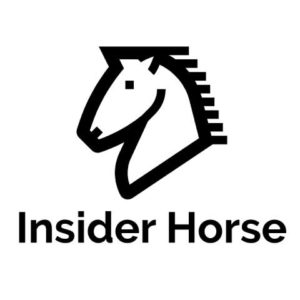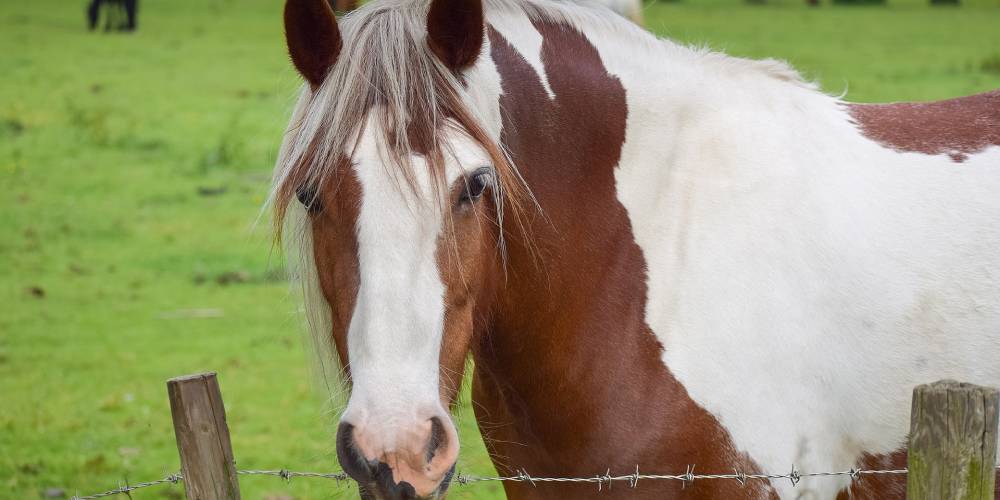Pacing in horses is a bad habit known as a stable vice. This habit is seen in horses both young and old, especially those who are on stall-rest or who don’t get out as much as they should. What is this habit though? What causes it and how can I break this stable vice?
What Is Pacing?
Pacing in horses is a bad habit known as a stable vice. This habit is seen in all horses of all ages and is developed mainly from boredom, stress, and anxiety. Pacing is a behavior where horses will nervously walk or run back and forth at a fence, gate, or stall door. This habit is usually caused by horses who suffer from some sort of anxiety. The best ways to break or prevent this habit is to turn your horse out more often, give the horse a toy to play with, pair them next to a buddy, and make sure your horse has a job. If they are doing it out of fear or stress, finding and eliminating the stressor should help with the issue.
Why Do Horses Pace?
There are a number of reasons why a horse may start pacing back and forth in front of a gate, fence, or door. Some of the most common reasons include:
- Stress
- Fear
- Anxiety
- Boredom
- Impatience
At What Age Do Horses Start Pacing?
Horses can start pacing back and forth and demonstrating this bad habit at pretty much any age. Some young horses who are stressed by their environments or other things are frequently seen picking up this habit.
The most common age groups and types of horses to begin to pace are:
- Young hotblooded horses
- Young to senior horses on stall rest
- Any aged horse in a stressful situation
- Foals separated from their mothers
Where Do Horses Pick Up This Habit?
Horses can pick up this specific habit in a number of places. The most common places where a horse might get this habit includes:
- Influence from another horse (copying the other horse’s behavior)
- Out or boredom (they generate this action on their own)
- Out of fear and anxiety
What To Do To Stop Or Prevent Pacing In Horses
There are so many different things you can do to stop horses from pacing back and forth in their stalls, turnouts, and paddocks. These things include:
Giving Your Horse Toys!
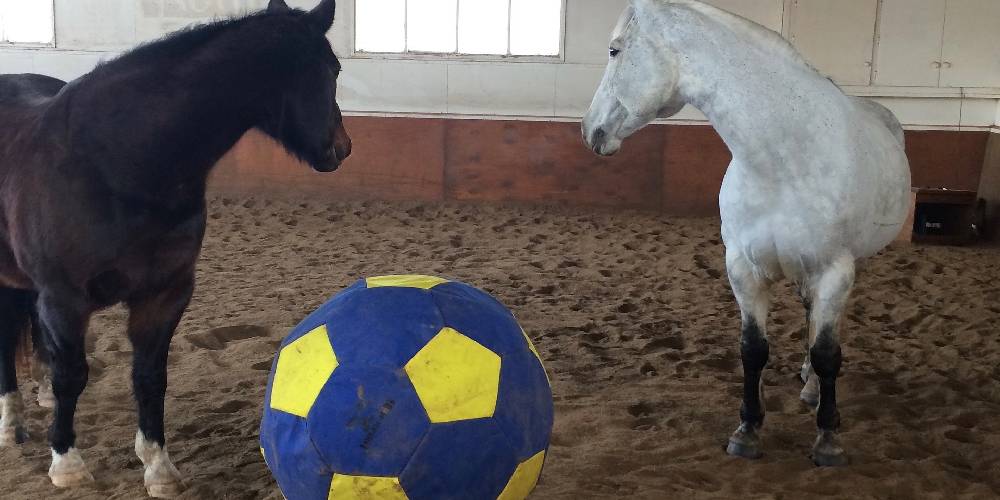
A lot of the pacing back and forth that a horse might do will be in his stall. The reason for this is the fact that his stall, especially if it is just a box stall, is a really boring place to be. Try to make it more fun for your horse by supplying him with different toys that he might like. Some toys or objects I recommend putting in his stall include:
- Exercise Balls
- Treat Dispensers
- Salt or Mineral Blocks
- Hanging Toys
- Traffic Cones (yes, I know it sounds like a weird choice, but horses actually like to play with traffic cones. Traffic cones and large, heavy and durable so they should easily be able to withstand the biting, kicking, and stepping that they would have to endure from a horse)
- Jolly Balls (a jolly ball is a heavy duty rubber ball with a handle on it so the horse can pick it up easily)
- Hay Balls (basically you put their favorite hay into a big rubber ball with holes in it and the horse will push it around and eat the hay out of it when they can)
For more information on stall toys, look at my article all about the best toys to break boredom! These toys will definitely help break those bad habits and stable vices. Click here to see it!
Turn Your Horse Out More Often & For Longer Periods Of Time
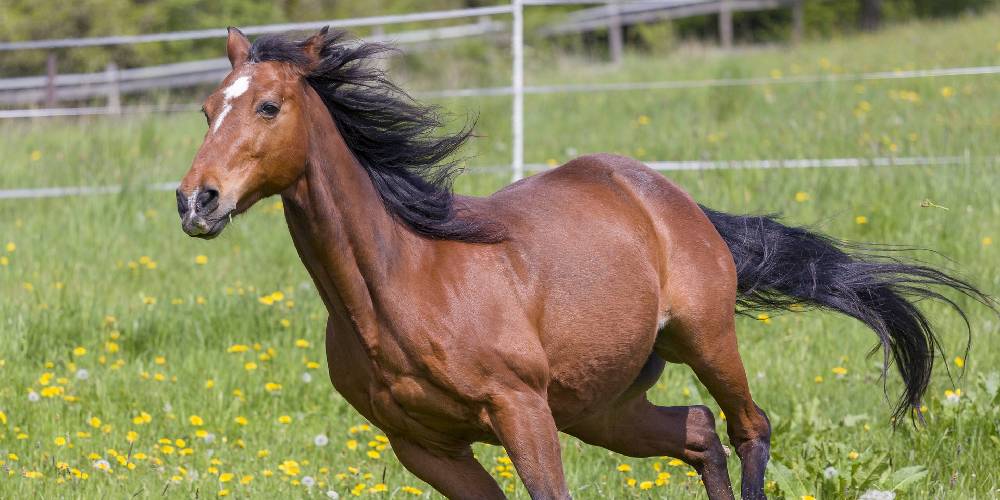
Horses need to have time to be horses. Basically, horses need to be able to run around, play, roll, and kick without being confined in a small stall. This is why your horse might need to have some time free to run around. Without it, your horse is likely to start getting bad habits and stable vices like pawing, pacing, or even cribbing.
If your horse is already showing signs of pacing, turn them out more often for longer periods of time to let him stretch his legs and be a horse just a little bit longer so being in his stall is a little more bearable.
Stable Him Next to One Of His Friends
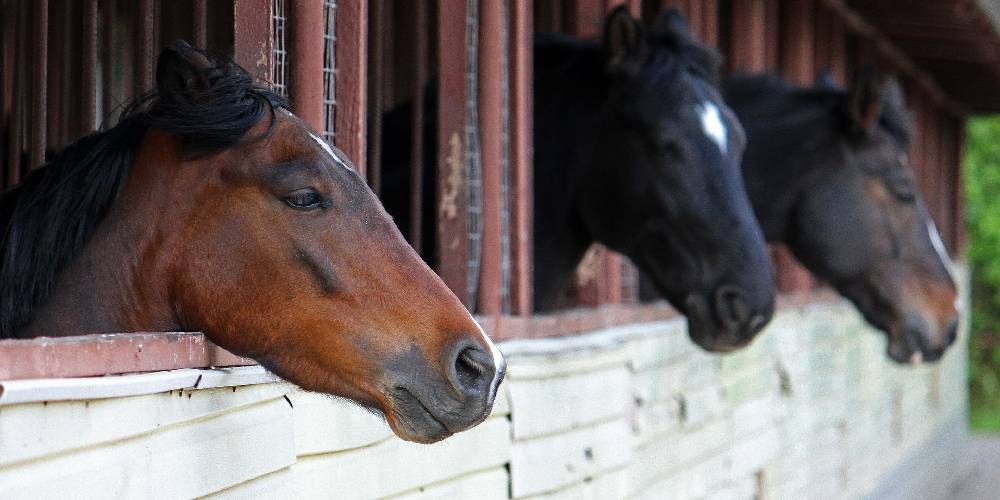
Horses have friends too. My old horse, Bronze, loved to be stabled next to his good buddy Cross Fiire. I noticed that Bronze did a lot better to be turned out with and stabled next to Cross Fiire than he did when stabled and turned out with a different member of the barn.
Horses are herd members so keeping them with or next to a horse that they would consider to be a close member of their herd may help them to relax and lower the chances of them pacing back and forth from stress and/or anxiety.
Give Your Horse A Job
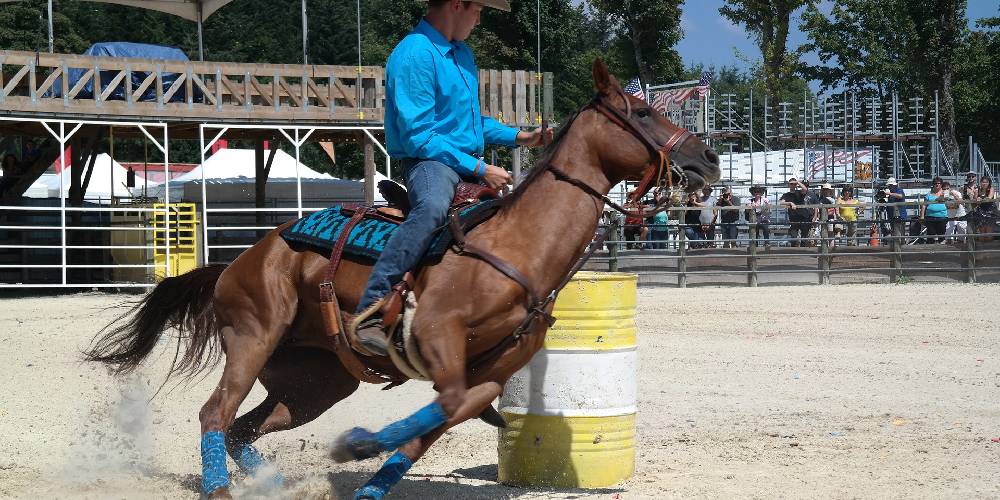
Horses that don’t really have a job or a purpose are a lot more likely to pick up a stable vice than a horse that has a job or a purpose. This is why I like to give my horses jobs to do. My old horse Bronze was a jumping and general riding horse and he knew when it was time to work. He loved to be ridden and loved to jump. This is partly why I think that he didn’t develop any bad habits or stable vices while I had him because he had a job and a purpose as well as the fact that his close herd mates and friends were always stabled by him.
My current gelding that I own, Cisco, has the job of giving riding lessons to little kids. Because he has a job that he likes to do and one that he does well at, I think that this, along with the fact that he is turned out in a large arena/paddock all the time, is why he does so well and doesn’t have any vices
